HVAC Systems
Aggravating Heat Pump Issues? Conquer With Our Guide

Fed up with the frustrating problems of your heat pump? Worry no more, our complete guide has got your back.
We understand that troubleshooting and fixing heat pump problems can be a daunting task, but fear not! Our expert tips and DIY fixes will help you conquer any malfunction.
Worried about deciphering those confusing error codes? We’ve got that covered too.
Whether it’s preventive maintenance or knowing when to call in the professionals, our guide has everything you need to keep your heat pump running smoothly.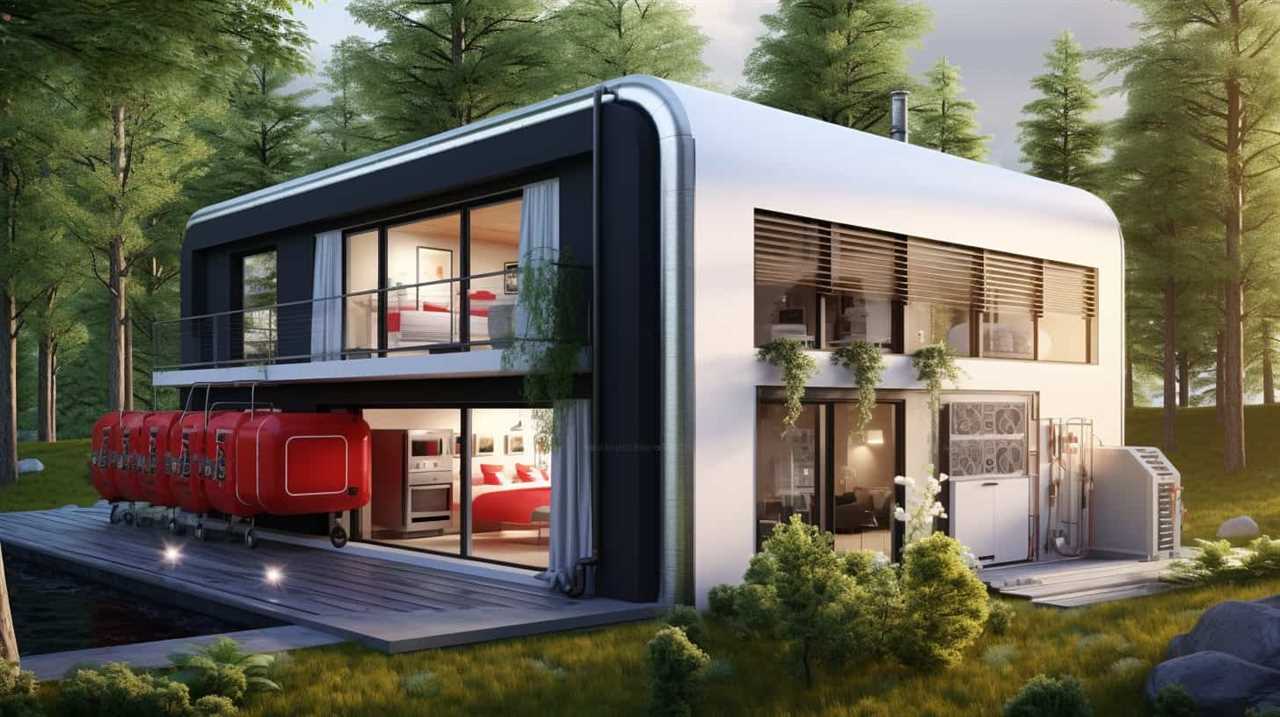
Key Takeaways
- Common heat pump problems include inadequate heating or cooling, poor airflow, refrigerant leaks, and faulty reversing valves.
- Troubleshooting tips for heat pump issues include checking and cleaning air filters, inspecting the outdoor unit for debris, verifying thermostat settings, looking for signs of refrigerant leaks, and contacting a professional for repairs if needed.
- Understanding heat pump error codes can help identify specific problems with the temperature sensor, outdoor fan motor, refrigerant pressure, or defrosting system.
- DIY fixes and regular maintenance, such as checking and cleaning air filters, clearing debris from the outdoor unit, and inspecting and cleaning evaporator and condenser coils, can help prevent costly repairs and maintain optimal heat pump performance.
Common Heat Pump Problems
We have encountered several common heat pump problems that homeowners should be aware of. When it comes to heat pump repairs, troubleshooting common issues is essential to keep your system running smoothly.
One common problem is inadequate heating or cooling. This could be due to a faulty thermostat, low refrigerant levels, or a malfunctioning compressor.
Another issue is poor airflow, which can be caused by clogged air filters or a damaged blower motor.
Additionally, heat pumps may experience refrigerant leaks, which can result in reduced efficiency and performance. Faulty reversing valves can also lead to problems with the heat pump’s ability to switch between heating and cooling modes.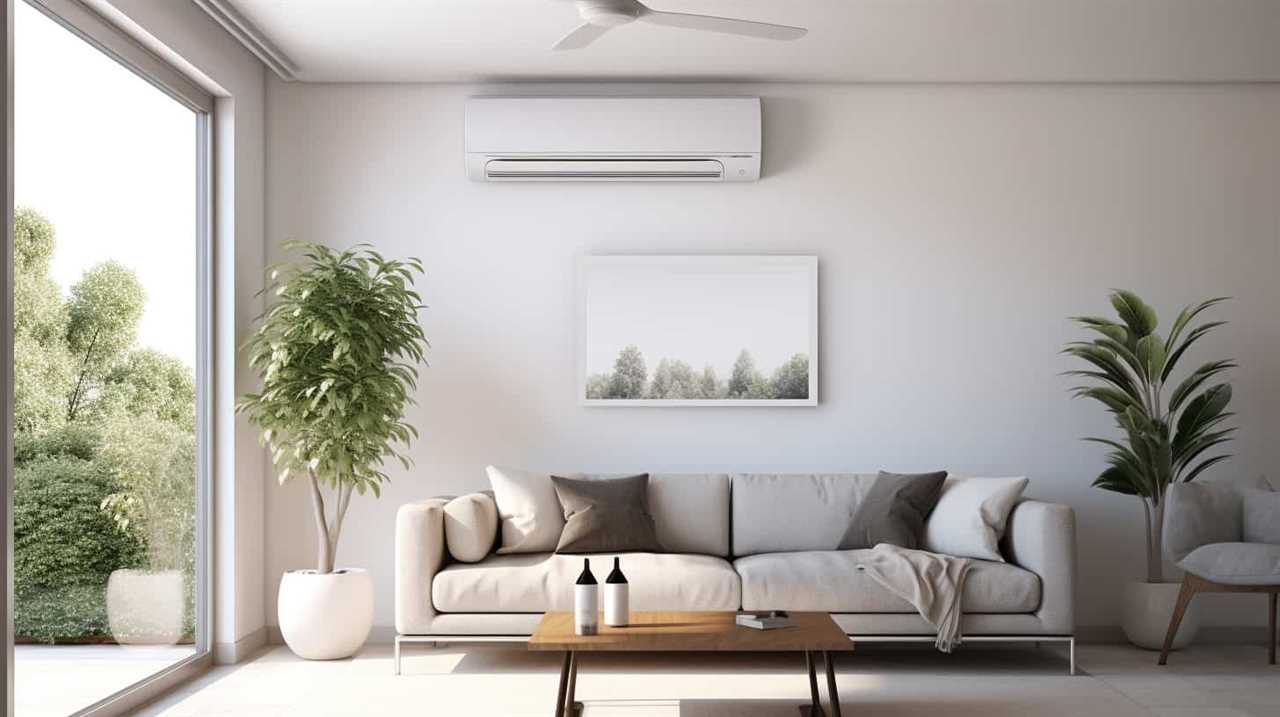
Troubleshooting Tips for Heat Pump Issues
When dealing with heat pump issues, it’s important to rely on troubleshooting tips to identify and resolve the problem. Here are some key steps to follow when troubleshooting heat pump noise issues or heat pump performance problems:
Check the air filters: Clogged or dirty air filters can restrict airflow and cause the heat pump to work harder, leading to performance issues. Clean or replace the filters regularly.
Inspect the outdoor unit: Ensure that the outdoor unit is free from debris, such as leaves or branches, which can obstruct airflow and affect the heat pump’s efficiency.
Verify thermostat settings: Make sure the thermostat is set to the correct temperature and mode. Incorrect settings can lead to inadequate heating or cooling.

Check for refrigerant leaks: Low refrigerant levels can result in poor heat pump performance. Look for any signs of refrigerant leaks, such as oil stains or hissing sounds, and contact a professional for repairs if needed.
Understanding Heat Pump Error Codes
When it comes to troubleshooting heat pump issues, understanding the common error codes is crucial. These error codes provide valuable information about the specific problem and help technicians diagnose and fix the issue quickly.
Common Error Codes
Are you curious about how to interpret common error codes on your heat pump? Understanding the meaning behind these error codes can help you troubleshoot and resolve issues with your heat pump more effectively. Here are four common error codes you may encounter and their possible meanings:
E1: This error code typically indicates a problem with the temperature sensor. It could be caused by a faulty sensor or a wiring issue. Check the sensor and wiring connections for any damage or loose connections.

E2: This error code usually points to an issue with the outdoor fan motor. It could be due to a malfunctioning motor or a problem with the motor control board. Inspect the fan motor for any signs of damage or obstruction and ensure that it’s receiving power.
E3: This error code commonly indicates a problem with the refrigerant pressure. It could be caused by low refrigerant levels or a refrigerant leak. Check the refrigerant levels and look for any visible signs of leaks.
E4: This error code typically indicates a problem with the defrosting system. It could be due to a faulty defrost control board or a malfunctioning defrost sensor. Inspect the defrosting components for any issues and ensure that they’re functioning properly.
Troubleshooting Heat Pump Issues
To effectively troubleshoot heat pump issues, we must understand the error codes that may appear and their corresponding meanings. Heat pump error codes are designed to pinpoint specific problems within the system, making it easier to identify and resolve issues. These codes provide valuable information to technicians during heat pump maintenance and repair.

By decoding the error codes, we can determine whether the problem lies with the compressor, fan motor, refrigerant levels, or other components of the heat pump. This knowledge allows us to take appropriate actions, such as cleaning or replacing parts, adjusting settings, or calling for professional assistance.
Understanding these error codes is crucial for effective heat pump troubleshooting and ensures that any malfunctions are addressed promptly and accurately.
Now, let’s move on to discussing DIY fixes for heat pump malfunctions.
DIY Fixes for Heat Pump Malfunctions
We can tackle heat pump malfunctions with these simple DIY fixes. Here are four effective solutions to common heat pump issues:
Check and clean the air filters: Clogged or dirty filters can restrict airflow and reduce the efficiency of your heat pump. Regularly inspect and clean or replace the filters to ensure proper heat pump maintenance.
Clear debris from the outdoor unit: Leaves, dirt, and other debris can accumulate around the outdoor unit, obstructing airflow. Gently clean the area around the unit and remove any obstructions to improve performance.
Inspect and clean the evaporator and condenser coils: Over time, dust and dirt can accumulate on the coils, reducing heat transfer efficiency. Use a soft brush or vacuum to remove debris and keep the coils clean for optimal heat pump operation.
Check the thermostat settings: Incorrect thermostat settings can cause heating or cooling inconsistencies. Make sure the thermostat is set to the desired temperature and is working correctly to avoid unnecessary heat pump repairs.

Signs That Your Heat Pump Needs Professional Help
If you notice strange sounds, unusual odors, or inconsistent temperatures, it may be time to call a professional for help with your heat pump. These are common signs that your heat pump needs professional assistance.
Strange sounds such as banging, screeching, or grinding can indicate a mechanical issue that requires expert attention.
Unusual odors like burning or musty smells may suggest electrical problems or mold growth within the system.
Inconsistent temperatures, where some rooms are too hot while others are too cold, could be a sign of a malfunctioning thermostat or a problem with the heat pump’s refrigerant levels.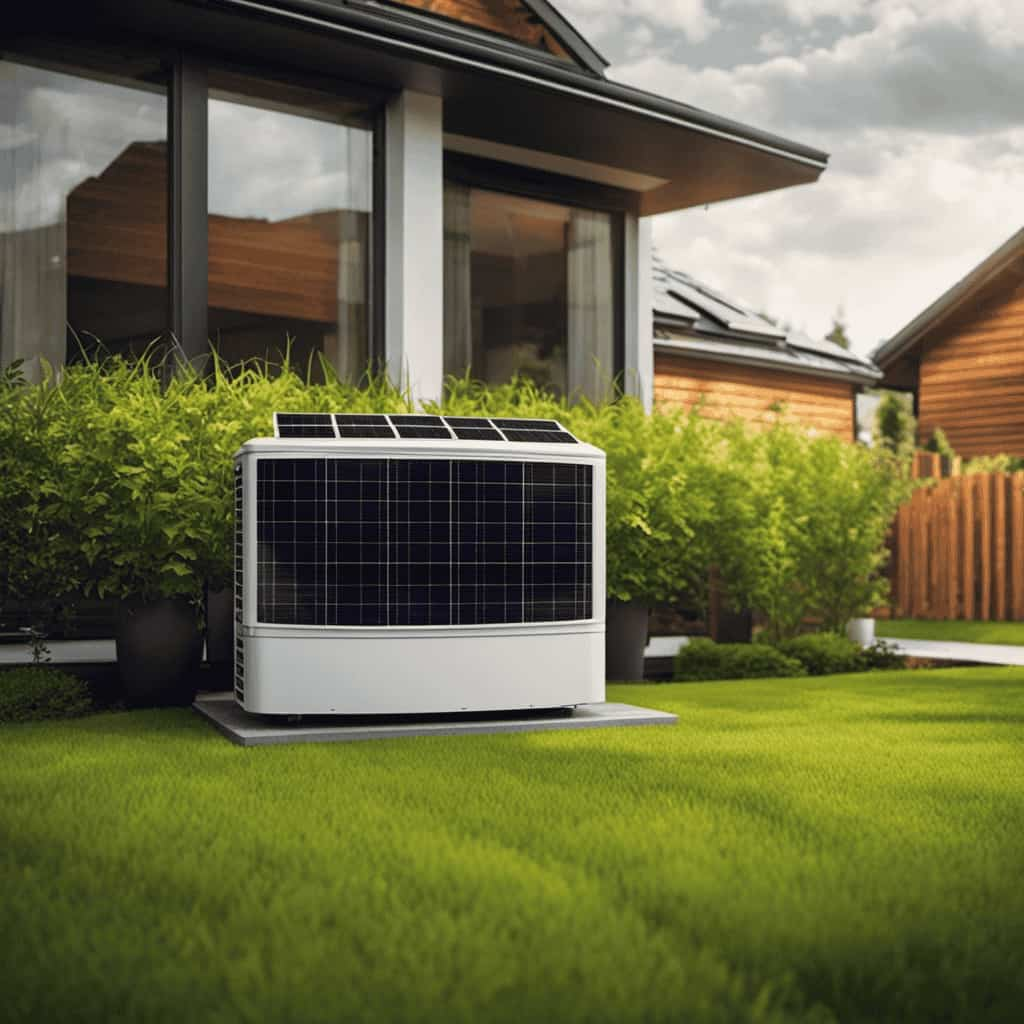
If you experience any of these signs, it’s important to know when to call a professional to diagnose and fix the issue, ensuring your heat pump operates efficiently and effectively.
Preventive Maintenance for Heat Pumps
Regular maintenance is crucial for ensuring the optimal performance of heat pumps. By performing common maintenance tasks such as cleaning or replacing air filters, checking refrigerant levels, and inspecting electrical connections, homeowners can prevent potential issues from arising.
Implementing cost-effective maintenance tips, such as keeping the outdoor unit clear of debris and scheduling professional tune-ups, can help extend the lifespan of the heat pump and maximize its energy efficiency.
Importance of Regular Maintenance
Taking care of our heat pumps through regular maintenance is crucial to prevent aggravating issues and ensure their optimal performance. Neglecting maintenance can lead to costly repairs and decreased efficiency, which can ultimately impact our comfort and energy bills.
Here are the benefits of regular maintenance:
Improved Efficiency: Regular maintenance, such as cleaning or replacing air filters and checking refrigerant levels, helps heat pumps operate at peak efficiency, saving energy and reducing utility costs.
Extended Lifespan: By addressing minor issues early on, regular maintenance can prevent major breakdowns and extend the lifespan of our heat pumps.
Enhanced Comfort: Well-maintained heat pumps provide consistent heating and cooling, ensuring our comfort all year round.
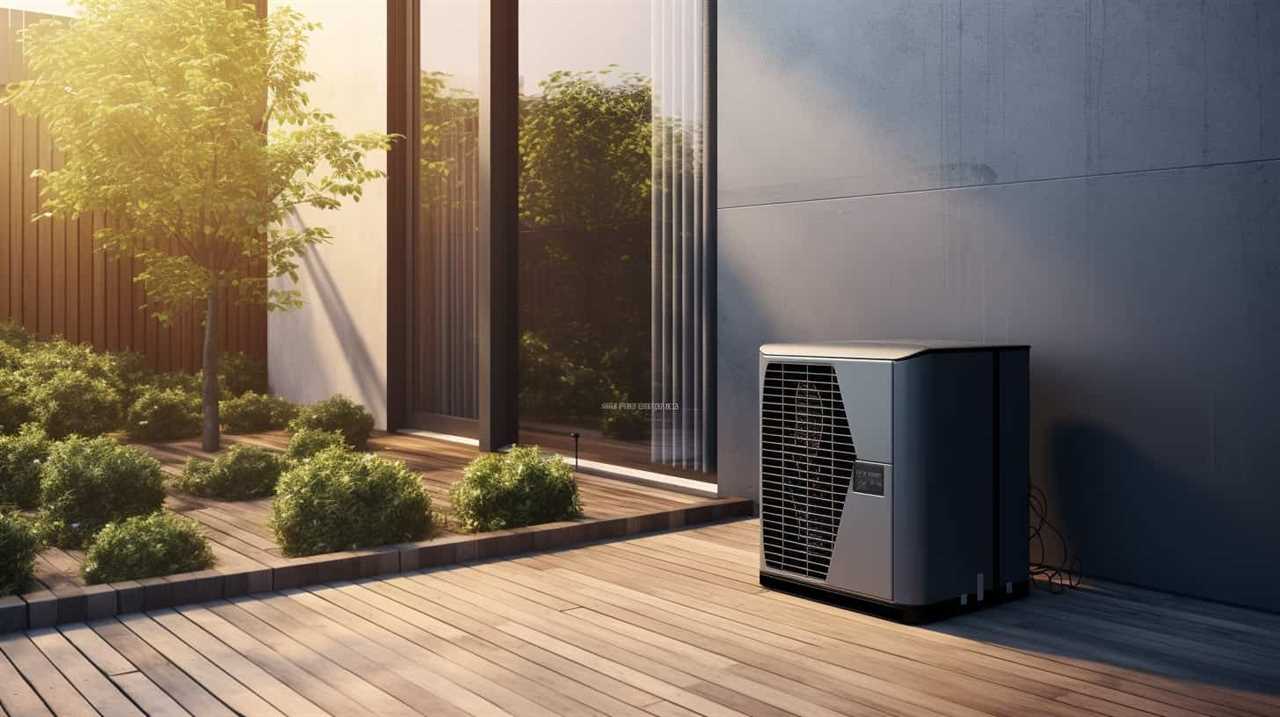
Warranty Protection: Regular maintenance is often a requirement to maintain the manufacturer’s warranty, providing added protection and potential cost savings.
Common Maintenance Tasks
Let’s start by discussing the essential common maintenance tasks for heat pumps to prevent issues and ensure their optimal performance. Two critical tasks that need to be regularly performed are heat pump cleaning and heat pump filter replacement. Cleaning the heat pump involves removing any debris, dirt, or leaves that may have accumulated on the unit. This can be done by gently spraying water on the coils and fins to remove any dirt or dust. Additionally, it is important to regularly replace the heat pump filter to ensure proper airflow and prevent the build-up of dirt and dust. A clogged or dirty filter can reduce the efficiency of the heat pump and lead to increased energy consumption. By regularly cleaning and replacing the filter, you can ensure that your heat pump operates efficiently and effectively.
| Maintenance Task | Frequency | Benefits |
|---|---|---|
| Heat Pump Cleaning | Every 3 months | Removes dirt and debris, improves efficiency |
| Filter Replacement | Every 6 months | Ensures proper airflow, prevents energy wastage |
| Check Refrigerant Levels | Annually | Prevents system failure, maintains optimal performance |
Cost-Effective Maintenance Tips
To ensure optimal performance and avoid costly repairs, we can save money by implementing cost-effective maintenance tips for our heat pumps. Follow this heat pump maintenance checklist to keep your system running smoothly and efficiently:
Clean or replace air filters regularly: Clogged filters restrict airflow, reducing the efficiency of your heat pump. Cleaning or replacing them every 1-3 months is essential.
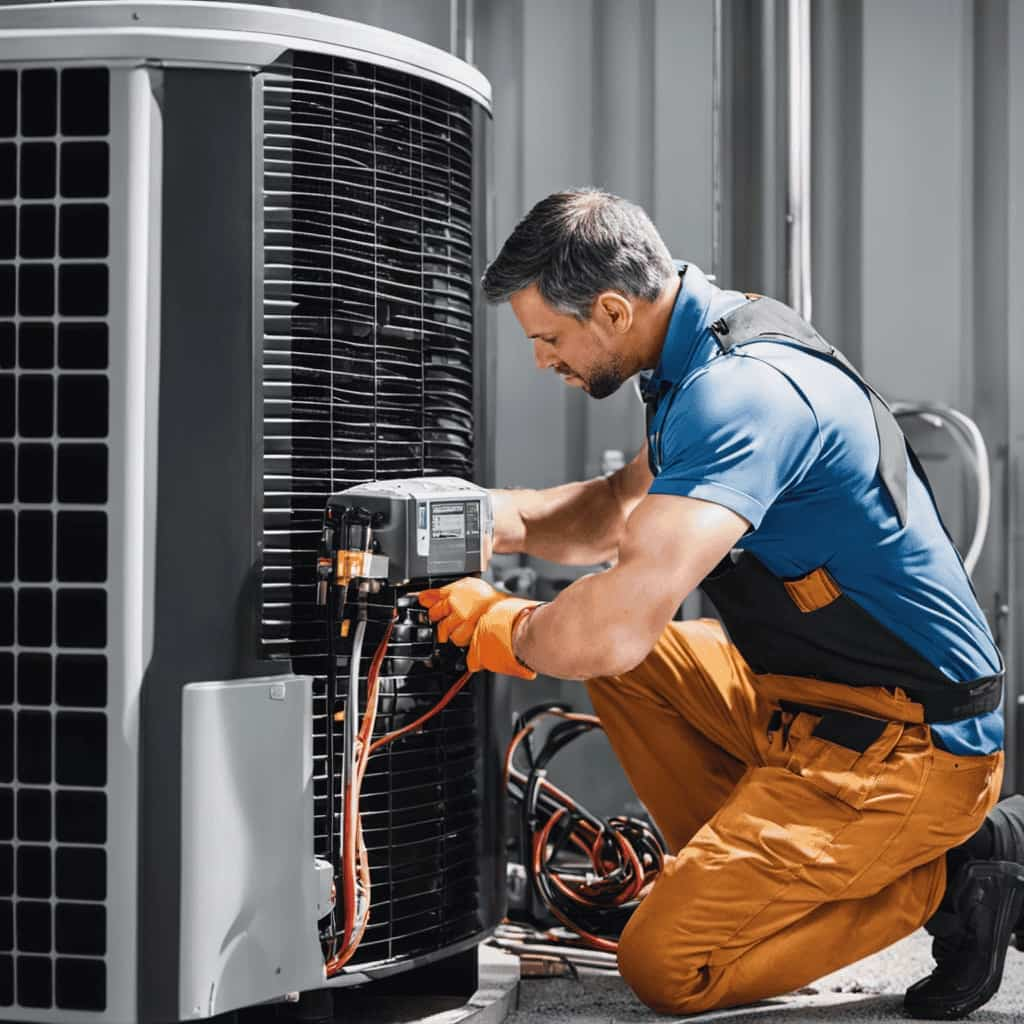
Keep outdoor unit clear: Remove any debris, leaves, or plants around the outdoor unit to maintain proper airflow and prevent damage.
Check and clean the coils: Dirty coils can hinder heat transfer. Periodically check and clean both the indoor and outdoor coils to ensure optimal performance.
Schedule professional maintenance: While DIY maintenance is important, it’s also crucial to have a professional inspect and service your heat pump annually. They can identify potential issues and ensure everything is functioning correctly.
Frequently Asked Questions
How Do I Choose the Right Size Heat Pump for My Home?
When choosing the right size heat pump for your home, factors to consider include square footage, insulation, and climate. The installation process is best handled by professionals. Regularly cleaning and replacing air filters is important for efficiency. Government incentives and the average lifespan of a heat pump should also be considered when making replacement decisions.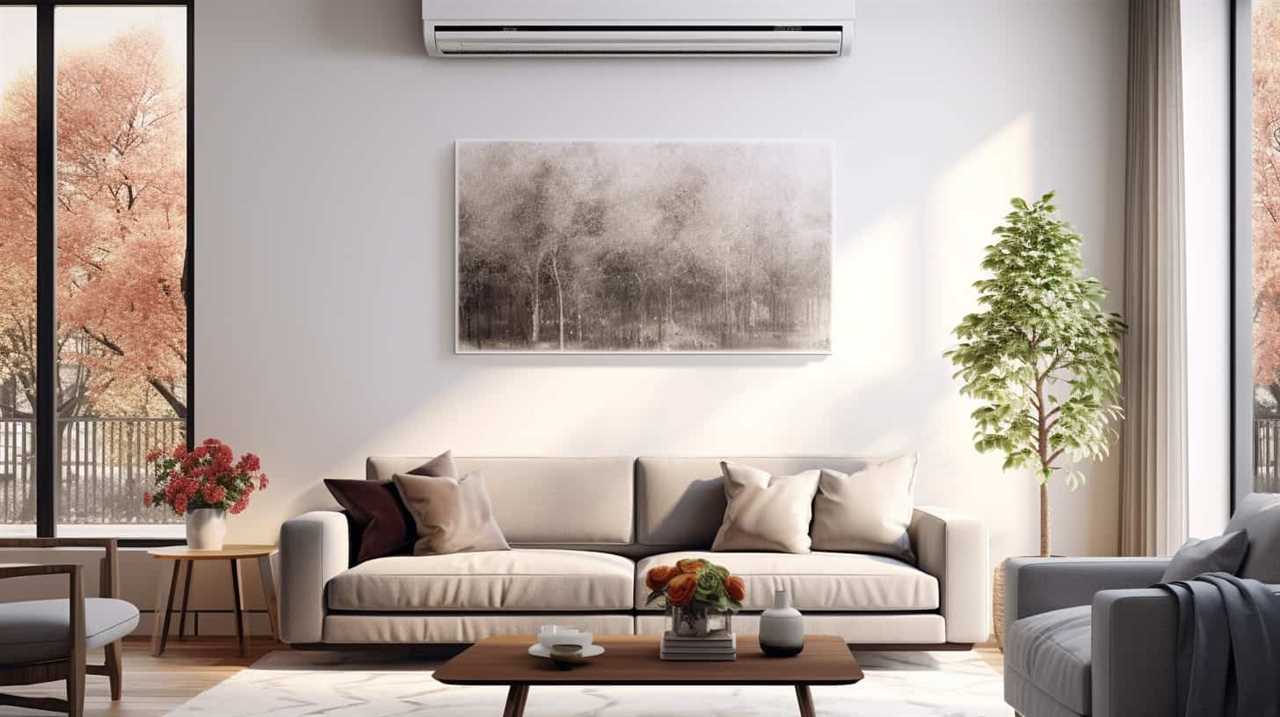
Can I Install a Heat Pump Myself, or Do I Need to Hire a Professional?
Installing a heat pump yourself can save money, but it comes with risks. The pros of DIY installation include cost savings and flexibility. However, cons include potential damage and voided warranties. Consider the cost comparison: DIY vs professional installation.
How Often Should I Clean or Replace the Air Filters in My Heat Pump?
We recommend cleaning or replacing air filters in your heat pump regularly to maintain optimal performance. Regular maintenance is essential for ensuring efficient airflow and preventing dust and debris buildup, which can aggravate heat pump issues.
Are There Any Government Incentives or Rebates Available for Installing a Heat Pump?
Government incentives and rebates can help offset the cost of installing a heat pump. With their focus on energy efficiency, these incentives promote cost savings and a greener future. Professional help is recommended for installation, while maintenance tips include regular air filter cleaning and considering the heat pump’s lifespan for replacement.
What Is the Average Lifespan of a Heat Pump, and When Should I Start Considering a Replacement?
The average lifespan of a heat pump is typically around 15 years. Signs of heat pump failure include reduced heating or cooling performance, strange noises, and increased energy bills. Consider replacement if these issues persist.
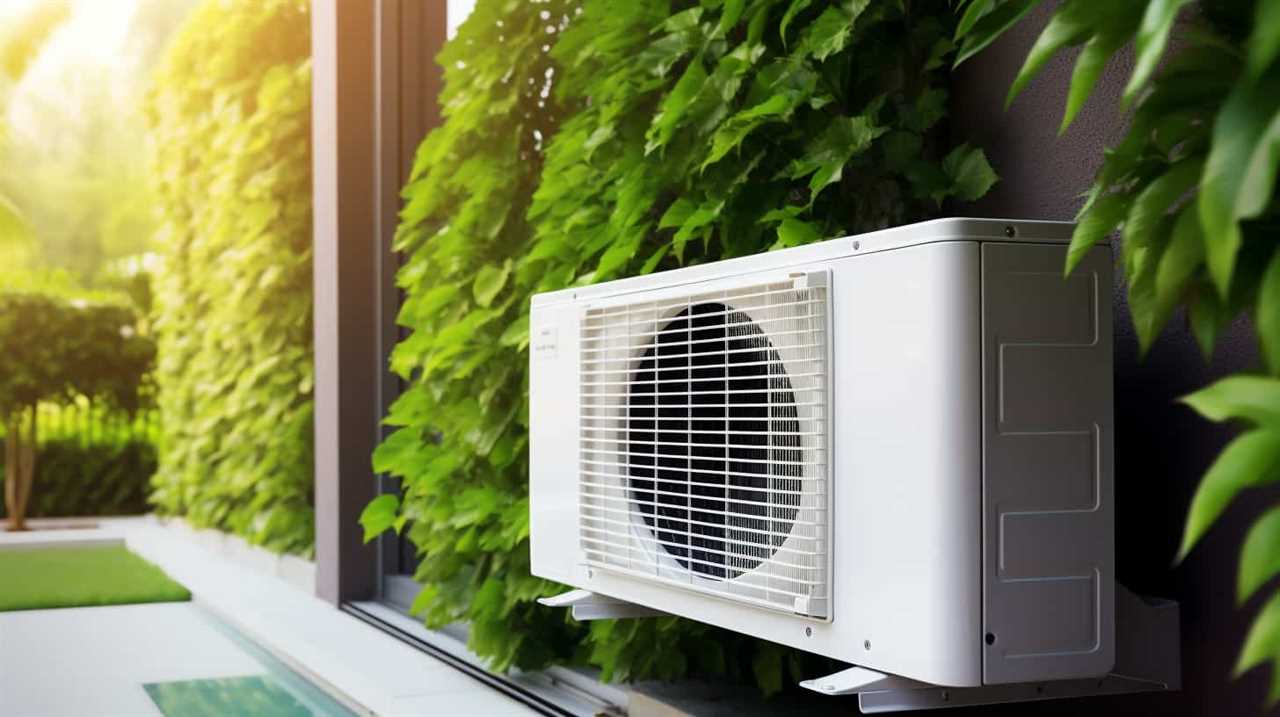
How Can I Troubleshoot Heat Pump Issues in My HVAC System?
Having trouble with your HVAC system? Troubleshooting heat pumps in hvac units can be a daunting task. However, a few simple steps can help. First, check the thermostat settings and ensure they are correct. Then, inspect the air filters for any buildup or debris. Next, examine the outdoor unit for any obstructions or damage. If the issue persists, it may be best to consult a professional technician for a thorough inspection.
Conclusion
In conclusion, understanding common heat pump problems and troubleshooting tips can help you conquer aggravating issues. By familiarizing yourself with heat pump error codes and DIY fixes, you can address malfunctions effectively.
However, it’s important to recognize when professional help is needed. Regular preventive maintenance is also crucial in ensuring the optimal performance of your heat pump.
Did you know that proper maintenance can increase the lifespan of a heat pump by up to 50%?
HVAC Systems
Comparing Heat Pump Efficiency: Solutions for Electricity Usage

We have some astonishing statistics to share with you.
When it comes to heat pump efficiency, understanding the key factors impacting electricity usage is crucial.
In this article, we’ll compare energy consumption between heat pumps and traditional heating systems.
But that’s not all – we’ll also delve into optimizing heat pump performance for lower electricity usage and explore energy-saving solutions.
Join us as we uncover the secrets to maximizing efficiency and reducing electricity consumption.
Key Takeaways
- SEER and HSPF ratings indicate the efficiency of a heat pump, with higher ratings indicating better performance.
- Climate, insulation, heat pump size, and thermostat settings all impact the electricity usage of a heat pump.
- Heat pumps are more energy-efficient than traditional heating systems, as they transfer heat rather than relying on combustion processes.
- Optimizing heat pump performance through smart thermostats, insulation improvements, regular maintenance, and airflow optimization can reduce electricity usage.
Understanding Heat Pump Efficiency Ratings
We’ll start by exploring the three main heat pump efficiency ratings.
When it comes to heat pump efficiency, it’s important to understand the standards and measurements used.
The first rating is the Seasonal Energy Efficiency Ratio (SEER), which measures the cooling efficiency of the heat pump over an entire season. The higher the SEER rating, the more efficient the heat pump is.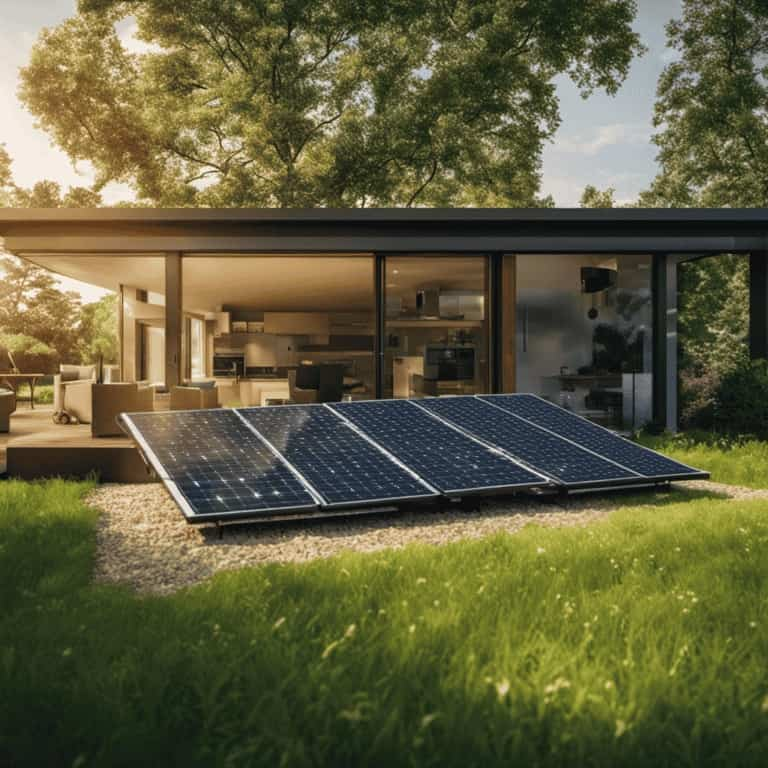
The second rating is the Heating Seasonal Performance Factor (HSPF), which measures the heating efficiency of the heat pump over a season. Again, a higher HSPF rating indicates a more efficient heat pump.
Lastly, we’ve the Coefficient of Performance (COP), which measures the ratio of heat output to the energy input. The higher the COP, the more efficient the heat pump.
Understanding these efficiency ratings is crucial when comparing and selecting a heat pump for optimal energy usage.
Key Factors Impacting Heat Pump Electricity Usage
When considering heat pump electricity usage, there are several key factors that can significantly impact efficiency. To conduct a thorough heat pump energy consumption analysis and maximize efficiency, it’s essential to take into account the following factors: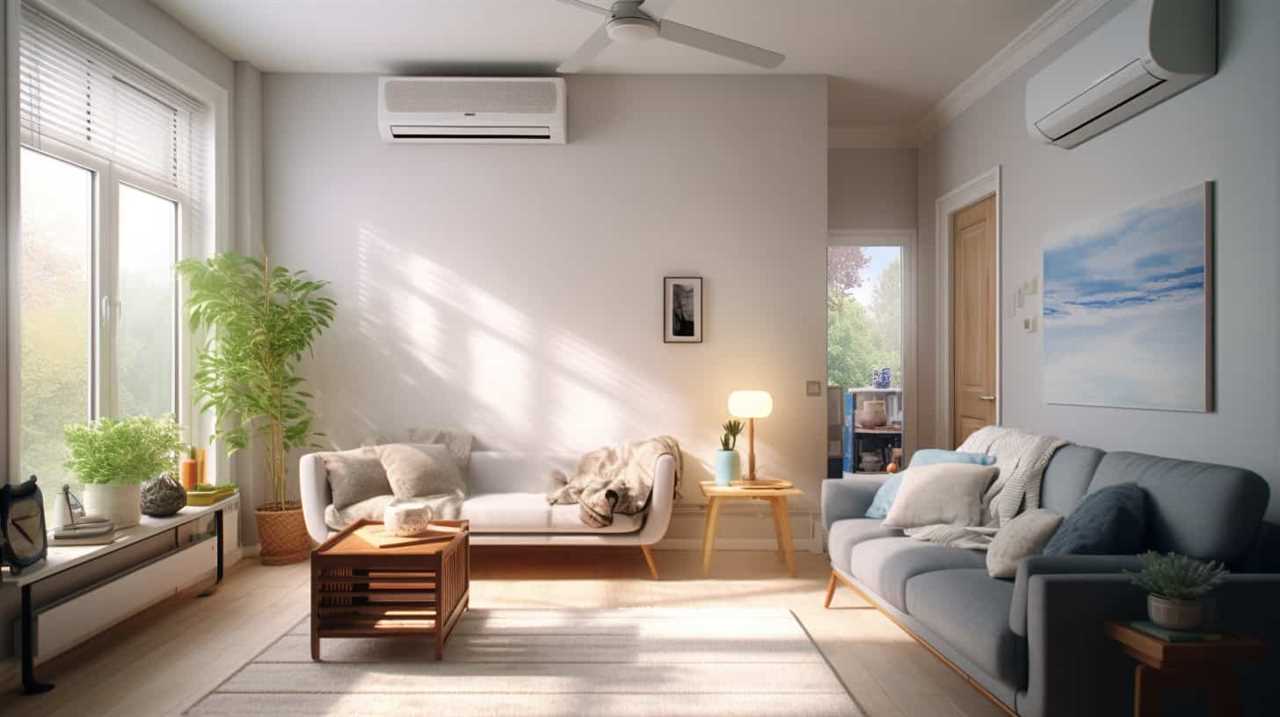
Climate: The temperature and humidity levels in your region can affect how hard the heat pump needs to work to maintain desired indoor temperatures.
Insulation: Proper insulation in your home helps to minimize heat loss, reducing the workload on the heat pump.
Sizing: Choosing the right-sized heat pump for your space is crucial. An oversized or undersized unit can lead to inefficient operation and higher electricity usage.
Thermostat settings: Optimal thermostat settings can help regulate temperature effectively, avoiding unnecessary energy consumption.

Maintenance: Regular maintenance, including cleaning filters and checking refrigerant levels, ensures that the heat pump operates efficiently and minimizes electricity usage.
Comparing Energy Consumption: Heat Pump Vs Traditional Heating Systems
There are several key differences in energy consumption between heat pumps and traditional heating systems.
When comparing the two, it becomes evident that heat pumps are a more energy efficient alternative for cost-effective heating. Heat pumps work by transferring heat from the outside air or ground into a building, rather than generating heat. This significantly reduces the amount of electricity required to provide heating.
Traditional heating systems, on the other hand, typically use combustion processes to generate heat, which can be quite energy-intensive.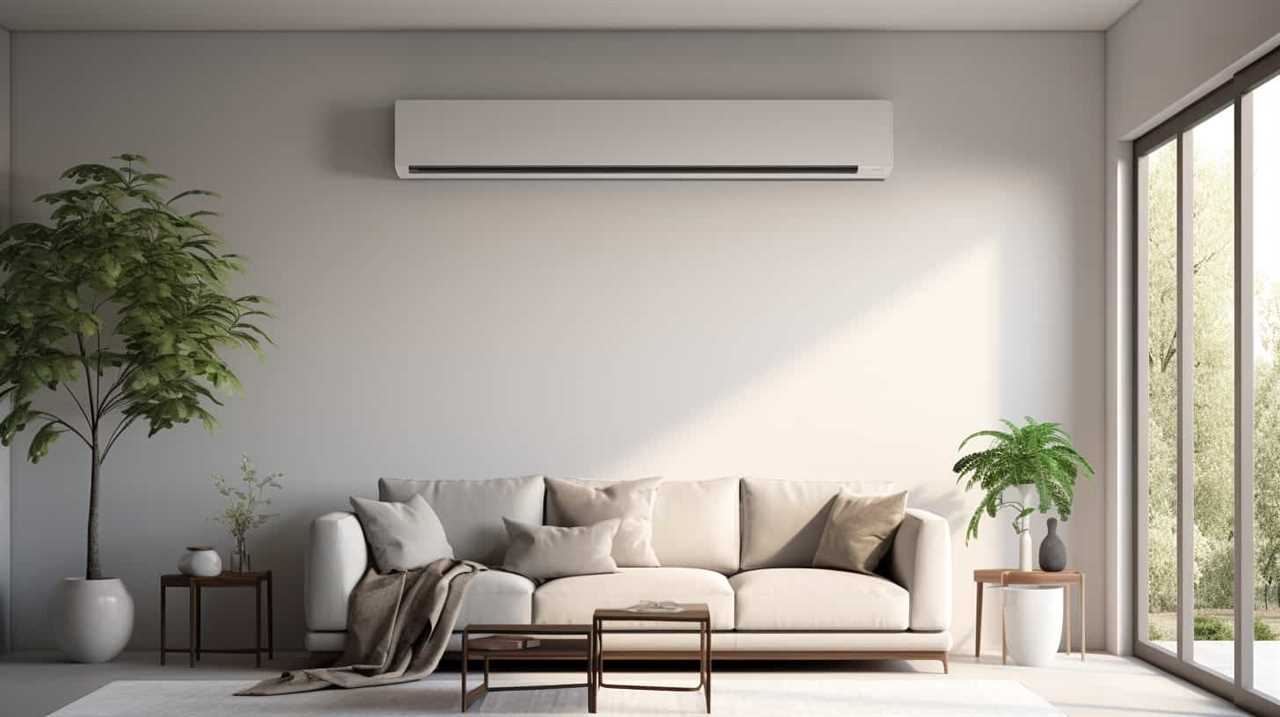
Heat pumps also have the advantage of being able to provide both heating and cooling, further increasing their energy efficiency.
Optimizing Heat Pump Performance for Lower Electricity Usage
To optimize heat pump performance and achieve lower electricity usage, we can implement various strategies and techniques. Here are five key approaches that can help in this endeavor:
Smart Thermostat Integration: By integrating a smart thermostat with your heat pump system, you can have greater control over temperature settings and scheduling, allowing you to optimize energy usage based on your specific needs and preferences.
Insulation Improvements: Enhancing the insulation of your home can significantly reduce heat loss and improve the overall efficiency of your heat pump. Proper insulation in walls, floors, and ceilings minimizes the need for your heat pump to work harder to maintain desired temperatures.

Regular Maintenance: Regularly servicing your heat pump ensures that it operates at its peak efficiency. This includes cleaning or replacing filters, checking refrigerant levels, and inspecting the overall functioning of the system.
Airflow Optimization: Ensuring proper airflow by keeping vents unobstructed and clean allows for efficient heat distribution throughout your home, reducing the workload on your heat pump.
Efficient Temperature Settings: Adjusting your thermostat to slightly lower temperatures in the winter and slightly higher temperatures in the summer can lead to noticeable energy savings without sacrificing comfort.
Energy-Saving Solutions for Heat Pump Electricity Consumption
To reduce heat pump electricity consumption, we can implement energy-saving solutions that optimize efficiency and minimize energy waste. Two effective strategies for achieving this are smart thermostat integration and insulation improvements. By integrating a smart thermostat with your heat pump system, you can take advantage of advanced features such as programmable schedules and remote control options. This allows you to optimize the temperature settings and reduce unnecessary energy usage. Additionally, improving insulation in your home can greatly reduce heat loss and improve the overall efficiency of your heat pump. Proper insulation helps to maintain a consistent indoor temperature, reducing the workload on the heat pump and minimizing electricity consumption. By implementing these energy-saving solutions, you can effectively reduce your heat pump’s electricity usage and save on energy costs.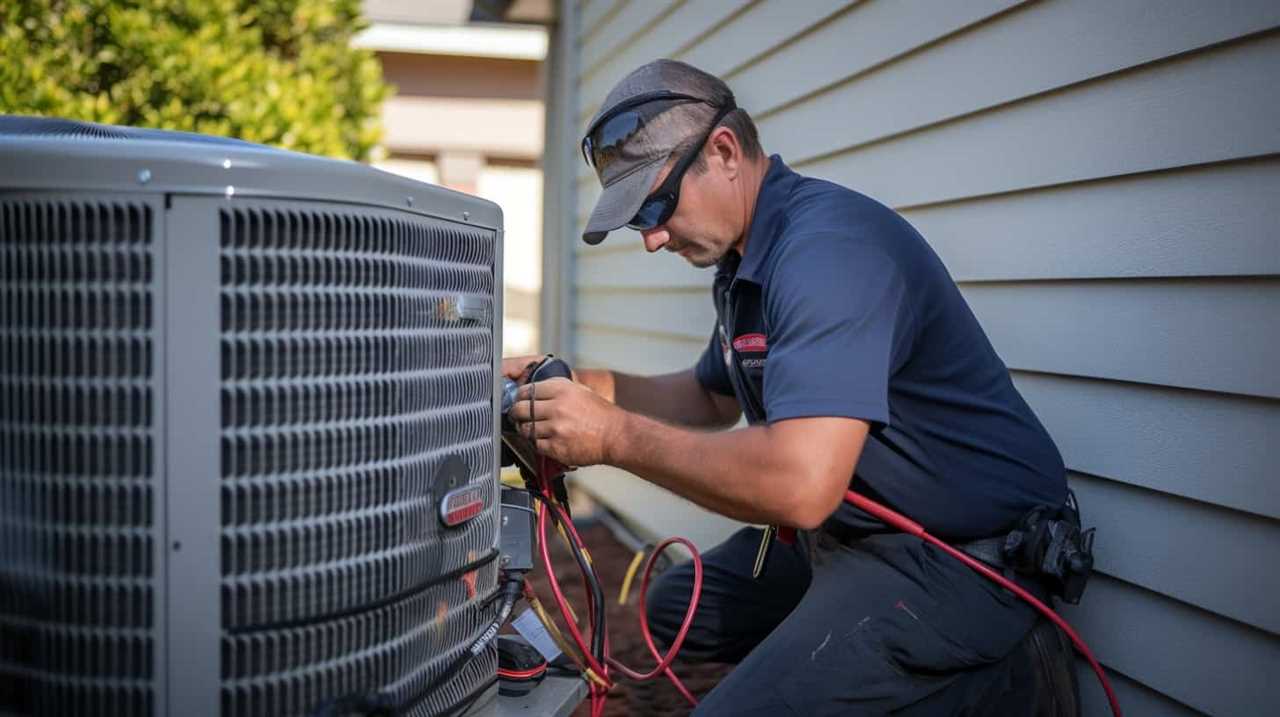
| Energy-Saving Solution | Description | Benefits |
|---|---|---|
| Smart Thermostat Integration | Integrating a smart thermostat with your heat pump system allows for advanced temperature control and scheduling options. This helps optimize energy usage and reduce unnecessary heating and cooling. | – Programmable schedules |
- Remote control options
- Increased energy efficiency | | Insulation Improvements | Improving the insulation in your home reduces heat loss and helps maintain a consistent indoor temperature. This reduces the workload on the heat pump and minimizes electricity consumption. | – Reduced heat loss
- Improved energy efficiency
- Consistent indoor temperature throughout the year |
Frequently Asked Questions
Are There Any Government Incentives or Rebates Available for Installing a Heat Pump?
Yes, there are government incentives and rebates available for installing a heat pump. These incentives can help offset the cost of installation and provide cost savings in the long run due to increased energy efficiency.
How Long Does a Heat Pump Typically Last Before It Needs to Be Replaced?
How long does a heat pump typically last before it needs to be replaced? We’ll explore the heat pump lifespan and the signs of heat pump replacement to help you understand when it’s time for an upgrade.
Can a Heat Pump Be Used to Cool a Home During the Summer Months?
Yes, a heat pump can be used to cool a home during the summer months. It functions by extracting heat from the indoor air and transferring it outside, resulting in a cooler indoor environment.
Are There Any Additional Maintenance Tasks Required for a Heat Pump Compared to Traditional Heating Systems?
There are additional maintenance tasks required for a heat pump compared to traditional heating systems. These tasks include regular filter cleaning or replacement, annual professional inspections, and ensuring proper airflow to optimize energy consumption.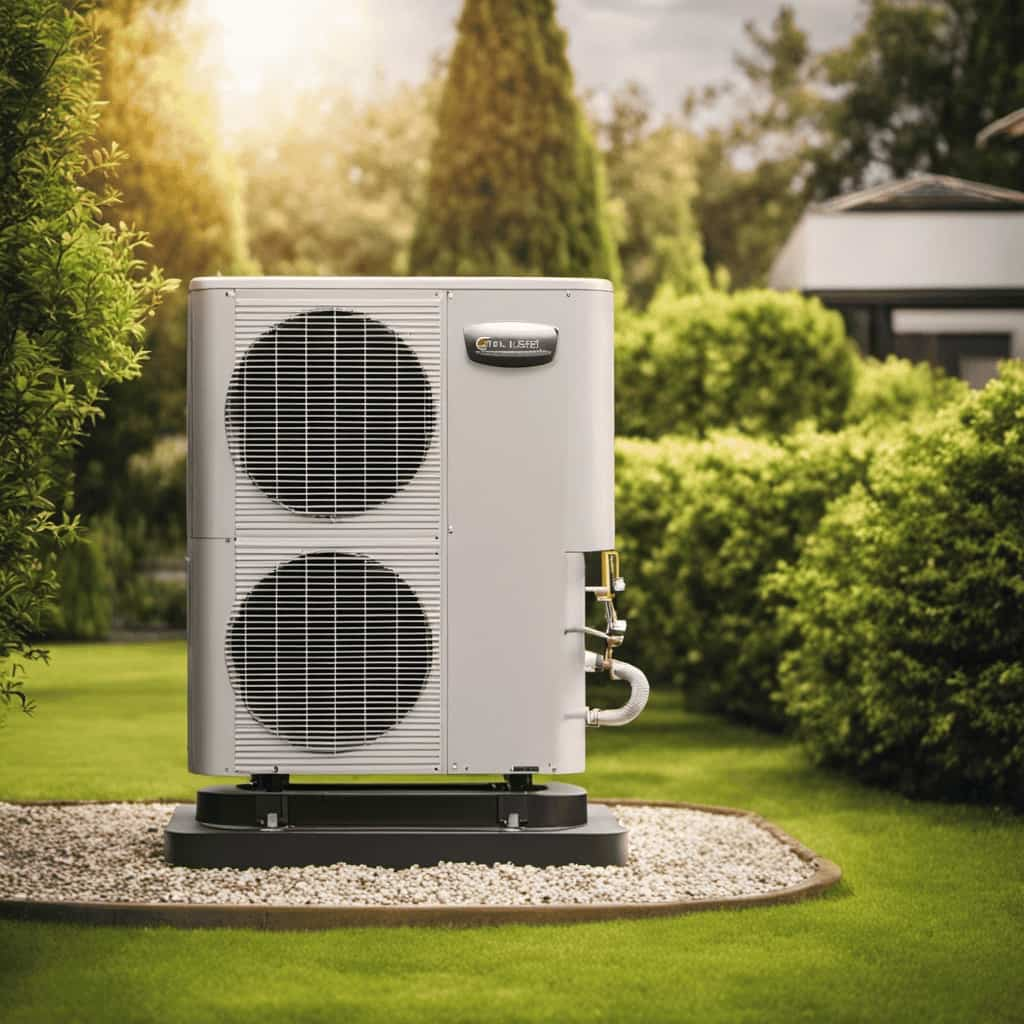
How Does the Efficiency of a Heat Pump Compare to Other Renewable Energy Sources Like Solar Panels or Geothermal Systems?
When comparing heat pump efficiency to other renewable energy sources like solar panels, it’s important to consider the pros and cons. Heat pumps offer efficient heating and cooling, but solar panels provide clean electricity generation.
What Should I Consider When Comparing HVAC Systems and Heat Pumps?
When comparing hvac systems vs heat pump, there are a few key factors to consider. First, evaluate the energy efficiency ratings of each system. The Seasonal Energy Efficiency Ratio (SEER) and Heating Seasonal Performance Factor (HSPF) are essential in determining their efficiency. Additionally, take into account the initial cost, installation requirements, and maintenance needs of both options. Lastly, consider the climate you live in, as this can impact the system’s performance and suitability for your home.
Conclusion
In conclusion, after analyzing the efficiency ratings and energy consumption of heat pumps compared to traditional heating systems, it’s clear that heat pumps offer significant advantages in terms of electricity usage.
By optimizing heat pump performance and implementing energy-saving solutions, users can further reduce their electricity consumption.
So, why settle for outdated and inefficient heating systems when heat pumps provide a smarter, more environmentally friendly solution?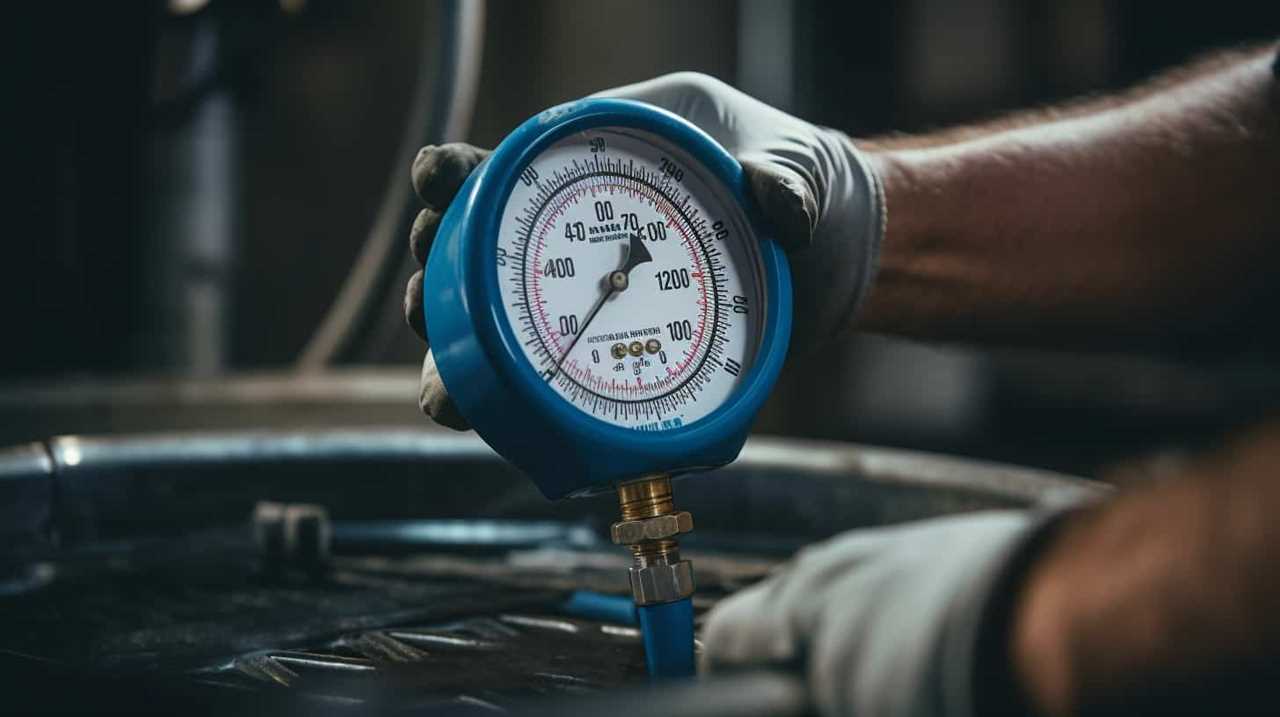
Embrace the future of heating and save both energy and money with heat pumps.
HVAC Systems
Defining ROI: Energy-Efficient Heat Pumps Analysis

We have come across an interesting fact: energy-efficient heat pumps can greatly affect your return on investment (ROI).
In this analysis, we delve into the financial benefits and long-term savings of these innovative devices. By understanding the cost-benefit analysis and factors affecting ROI, you can make informed decisions about implementing energy-efficient heat pumps.
Join us as we explore how this technology can revolutionize your energy consumption and contribute to a more sustainable future.
Key Takeaways
- Calculating ROI helps make informed decisions.
- Heat pumps reduce energy consumption and costs.
- Long-term savings outweigh initial costs.
- Rebates and incentives can reduce upfront costs and increase savings potential.
The Importance of ROI in Energy-Efficient Heat Pumps
We understand the importance of calculating ROI in energy-efficient heat pumps for making informed decisions.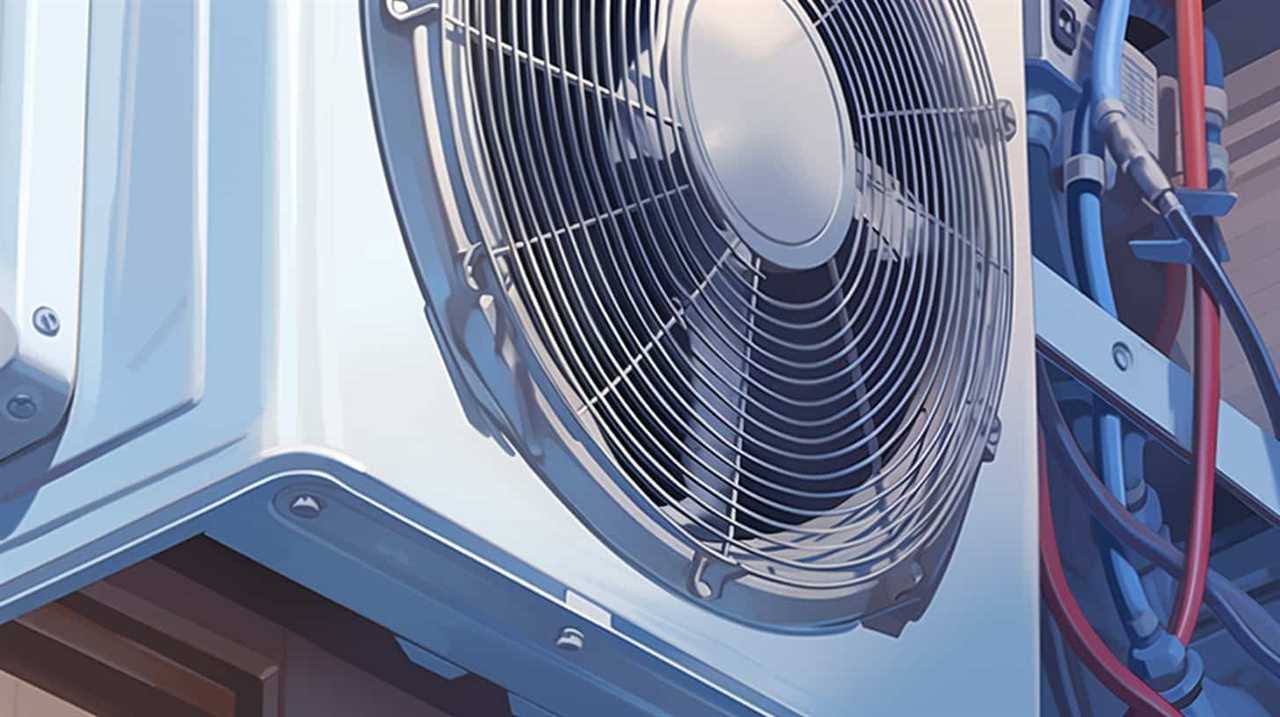
When it comes to investing in energy-efficient heat pumps, it’s crucial to consider the significance of calculating ROI.
By analyzing the relationship between energy savings and return on investment, we can determine the financial benefits of implementing energy-efficient heat pumps in our systems.
Calculating ROI allows us to evaluate the cost-effectiveness of these heat pumps and make informed decisions regarding their adoption.
By considering factors such as upfront costs, energy savings, and maintenance expenses, we can determine the payback period and overall financial viability of these investments.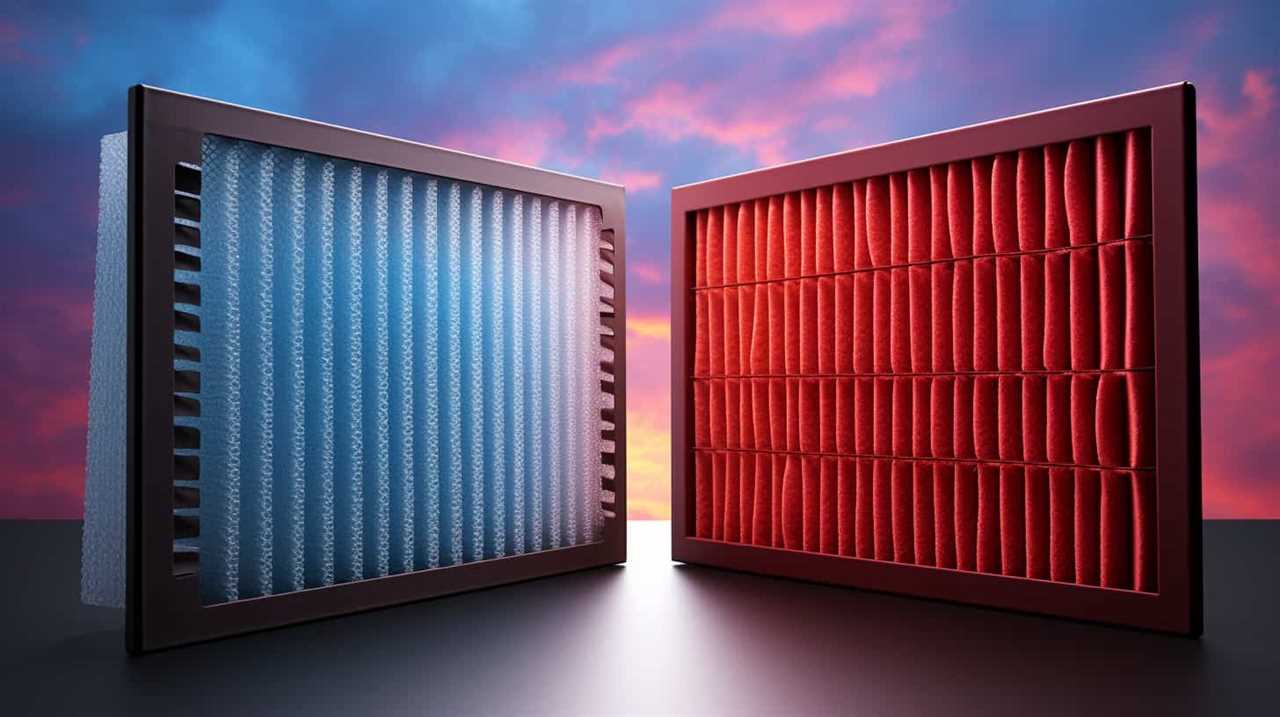
This analysis empowers us to prioritize and allocate resources effectively, ensuring that our energy systems aren’t only efficient but also financially sustainable.
Understanding the Cost-Benefit Analysis of Heat Pump Energy Efficiency
When conducting a cost-benefit analysis of heat pump energy efficiency, it’s essential to consider the financial implications and potential savings. A key component of this analysis is the cost effectiveness analysis, which evaluates the financial benefits of energy consumption reduction achieved through heat pump efficiency.
By comparing the initial investment in energy-efficient heat pumps with the projected savings in energy costs over the system’s lifespan, businesses and homeowners can determine the viability of implementing these technologies. The savings are achieved through reduced energy consumption, as heat pumps utilize renewable energy sources and operate more efficiently than traditional heating and cooling systems.
This cost effectiveness analysis provides a clear understanding of the financial benefits associated with energy-efficient heat pumps, allowing decision-makers to make informed choices regarding their adoption.
Now, let’s delve into the factors that can affect the return on investment (ROI) in energy-efficient heat pumps.
Factors Affecting ROI in Energy-Efficient Heat Pumps
As we explore the factors affecting ROI in energy-efficient heat pumps, it’s important to consider the upfront costs, energy savings, and maintenance expenses. These factors play a crucial role in determining the overall financial benefits of investing in energy-efficient heat pumps.
Firstly, upfront costs are a significant factor in calculating ROI. Energy-efficient heat pumps generally have a higher initial cost compared to traditional heating systems. However, the long-term energy savings they provide can offset this initial expense.
The potential for substantial energy savings is another factor to consider. Energy-efficient heat pumps utilize advanced technology to maximize energy efficiency, resulting in lower energy consumption and reduced utility bills.
Additionally, maintenance expenses should be taken into account when evaluating ROI. While energy-efficient heat pumps require regular maintenance to ensure optimal performance, they generally have lower maintenance costs compared to traditional heating systems.
By considering these factors, we can better understand the potential benefits of investing in energy-efficient heat pumps.
Now, let’s move on to the next section where we’ll analyze the financial benefits of these innovative systems.
Analyzing the Financial Benefits of Energy-Efficient Heat Pumps
To fully understand the financial benefits of energy-efficient heat pumps, we’ll analyze the cost savings and return on investment they offer.
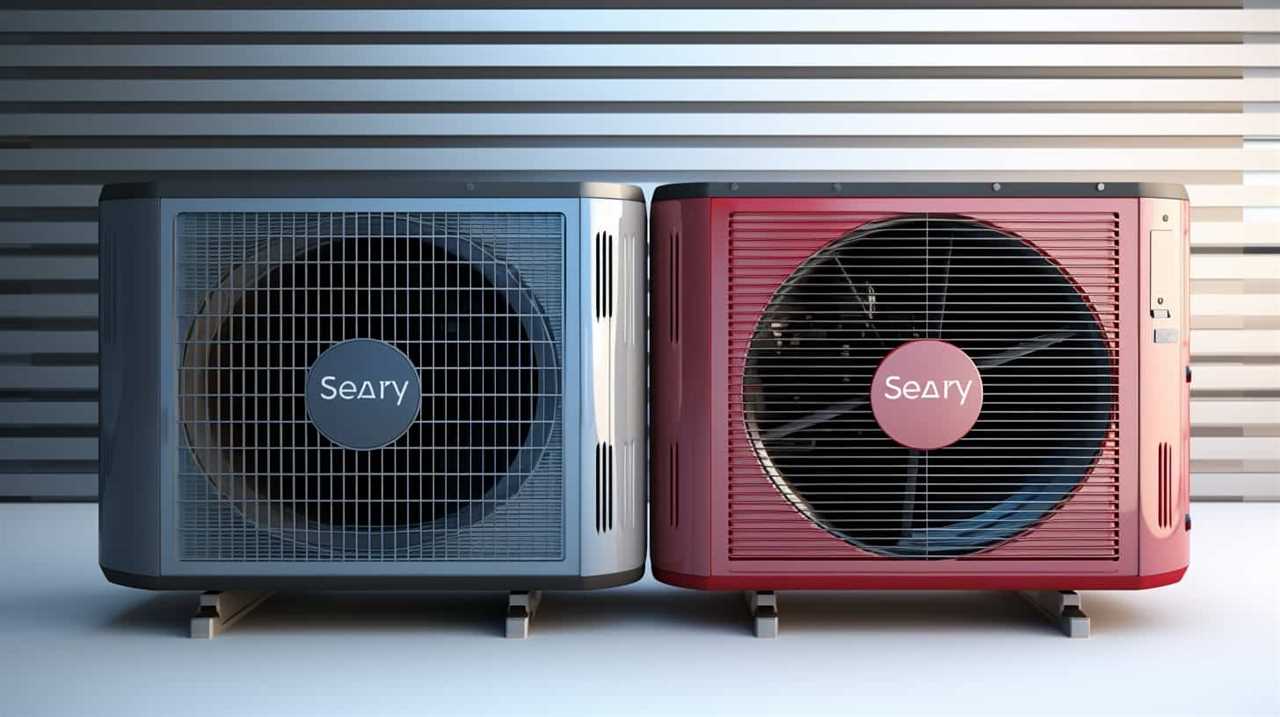
When it comes to the financial implications of energy-efficient heat pumps, the most significant advantage lies in the energy savings they provide. By utilizing advanced technology and efficient design, these heat pumps can significantly reduce energy consumption compared to traditional heating methods. This translates into lower energy bills for homeowners and businesses, resulting in substantial cost savings over time.
Additionally, the return on investment for energy-efficient heat pumps is often quite favorable. While the upfront costs may be higher than conventional heating systems, the long-term savings and reduced energy consumption make them a financially sound choice.
Evaluating the Long-Term Savings of Energy-Efficient Heat Pumps
We will assess the long-term savings of energy-efficient heat pumps and determine their financial viability.
When evaluating the performance of energy-efficient heat pumps and comparing models, the following factors should be considered:
Energy Efficiency: Look for heat pumps with high energy efficiency ratings, which indicate lower energy consumption and potential cost savings over time.
Operational Costs: Consider the maintenance and repair costs associated with different heat pump models. Lower operational costs can contribute to long-term savings.
Lifespan: Evaluate the expected lifespan of the heat pump models being compared. Longer lifespans can result in greater overall savings.
Rebates and Incentives: Research available rebates and incentives for energy-efficient heat pumps. Take advantage of these programs to maximize savings.

Frequently Asked Questions
How Does the Installation Process of Energy-Efficient Heat Pumps Affect the Roi?
The installation process of energy-efficient heat pumps significantly impacts the ROI. By optimizing the installation, we can ensure maximum energy savings, leading to a higher return on investment and increased efficiency for our innovative audience.
Are There Government Incentives or Rebates Available for Investing in Energy-Efficient Heat Pumps?
Yes, there are government incentives and rebates available for investing in energy-efficient heat pumps. These incentives provide financial benefits that can significantly impact the return on investment for individuals and businesses.
What Are the Maintenance Requirements for Energy-Efficient Heat Pumps and How Do They Impact the Overall Roi?
Maintenance costs for energy-efficient heat pumps can impact the overall ROI. Regular maintenance ensures optimal performance and extends the lifespan of the system. However, these costs are outweighed by the long-term savings in energy consumption.
How Does the Climate and Geographical Location Affect the Efficiency and ROI of Energy-Efficient Heat Pumps?
The climate impact and geographical factors play a significant role in the efficiency and ROI of energy-efficient heat pumps. These variables determine the unit’s performance and potential savings, making them crucial considerations for innovative solutions.
Are There Any Potential Risks or Drawbacks Associated With Investing in Energy-Efficient Heat Pumps That Could Impact the Roi?
There can be potential risks and drawbacks associated with investing in energy-efficient heat pumps that could impact the ROI. It is crucial to analyze factors like maintenance costs and potential technology obsolescence before making the investment.
What Factors Contribute to the Cost-Efficiency of Energy-Efficient Heat Pumps?
The cost-efficiency of energy-efficient heat pumps is influenced by several factors. Firstly, the upfront cost of purchasing and installing the heat pump plays a significant role. Additionally, the energy consumption and efficiency ratings of the pump impact its operating costs. Proper maintenance and insulation of the building also contribute to its cost-efficiency. Lastly, available government incentives and rebates can further enhance the overall cost-efficiency of energy-efficient heat pumps.
Conclusion
In conclusion, energy-efficient heat pumps offer a promising return on investment (ROI) for homeowners and businesses. By carefully analyzing the cost-benefit analysis and considering factors such as energy savings and long-term financial benefits, it’s clear that investing in these heat pumps can lead to significant savings and contribute to a more sustainable future.
Symbolically, energy-efficient heat pumps act as a beacon of efficiency, guiding us towards a greener and more cost-effective solution for heating and cooling needs.
HVAC Systems
Revolutionizing Climate Control: Green Heating Reduces Carbon Footprint

Are you aware that traditional heating methods account for a significant 30% of worldwide carbon emissions? It’s time for a shift.
In this article, we explore the revolutionary world of green heating and its potential to reduce our carbon footprint. By harnessing the power of renewable energy sources and prioritizing energy efficiency, we can pave the way towards a sustainable future.
Join us as we uncover the solutions that will liberate us from the shackles of harmful climate control practices.
Key Takeaways
- Conventional heating methods contribute significantly to global carbon emissions and have adverse effects on air quality and human health.
- Sustainable alternatives, such as heat pumps and renewable energy-powered heating systems, can significantly reduce emissions and reliance on fossil fuels.
- Geothermal and solar heating systems offer benefits such as lower greenhouse gas emissions, energy cost savings, and increased energy independence.
- Energy efficiency measures in heating systems play a vital role in reducing energy consumption, greenhouse gas emissions, and financial savings through lower utility bills.
The Environmental Impact of Conventional Heating Methods
We need to understand the environmental impact of conventional heating methods in order to make informed decisions about reducing our carbon footprint.
Conventional heating methods, such as the burning of fossil fuels, contribute significantly to greenhouse gas emissions. According to the United States Environmental Protection Agency, residential heating accounts for nearly a quarter of total emissions. These emissions not only contribute to climate change but also have adverse effects on air quality and human health.
It’s imperative that we explore sustainable alternatives to reduce emissions. One such alternative is the use of renewable energy sources, such as geothermal or solar heating systems. These systems harness clean energy, reducing our dependence on fossil fuels and minimizing carbon emissions.
Understanding Heat Pump Technology and Its Benefits
Heat pump technology offers numerous benefits in terms of energy efficiency and sustainability. Here are four key advantages of geothermal heating and heat pump efficiency:
Lower energy consumption: Heat pumps operate by transferring heat from one place to another, rather than generating heat themselves. This results in significant energy savings compared to traditional heating methods.
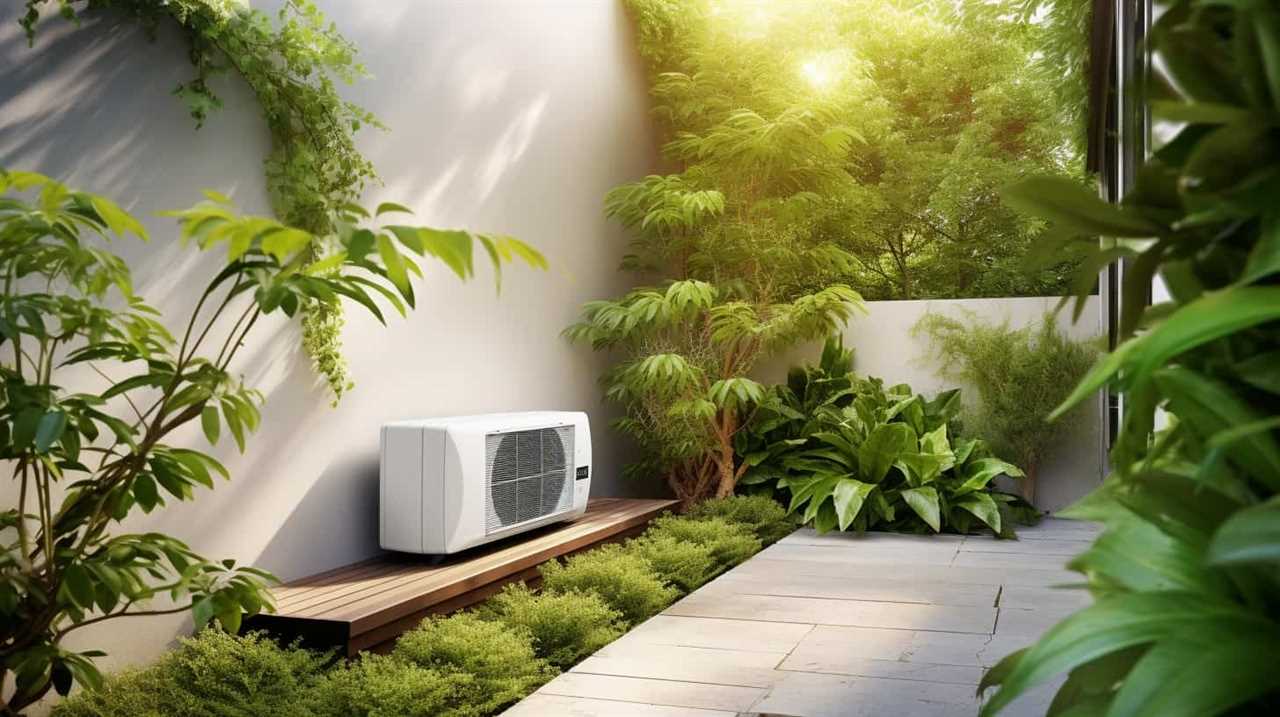
Reduced carbon footprint: By utilizing renewable energy sources, such as the heat from the ground or air, heat pumps emit fewer greenhouse gases than fossil fuel-based heating systems. This helps combat climate change and reduces our overall carbon footprint.
Year-round comfort: Heat pumps can provide both heating and cooling capabilities, making them versatile and suitable for all seasons. They can extract heat from the environment to warm your home in winter and reverse the process to cool it during summer.
Cost savings: Due to their high energy efficiency, heat pumps can lead to substantial cost savings on monthly utility bills. Additionally, geothermal heating systems have lower maintenance requirements and a longer lifespan compared to other heating systems, further reducing expenses.
Exploring Renewable Energy Sources for Heating
By harnessing the power of renewable energy sources, such as solar and geothermal, we can significantly reduce our carbon footprint while providing efficient heating solutions. Geothermal heating utilizes the Earth’s natural heat to warm our homes and buildings, while solar heating harnesses the energy from the sun. These renewable energy sources offer numerous benefits, including lower greenhouse gas emissions, lower energy costs, and increased energy independence.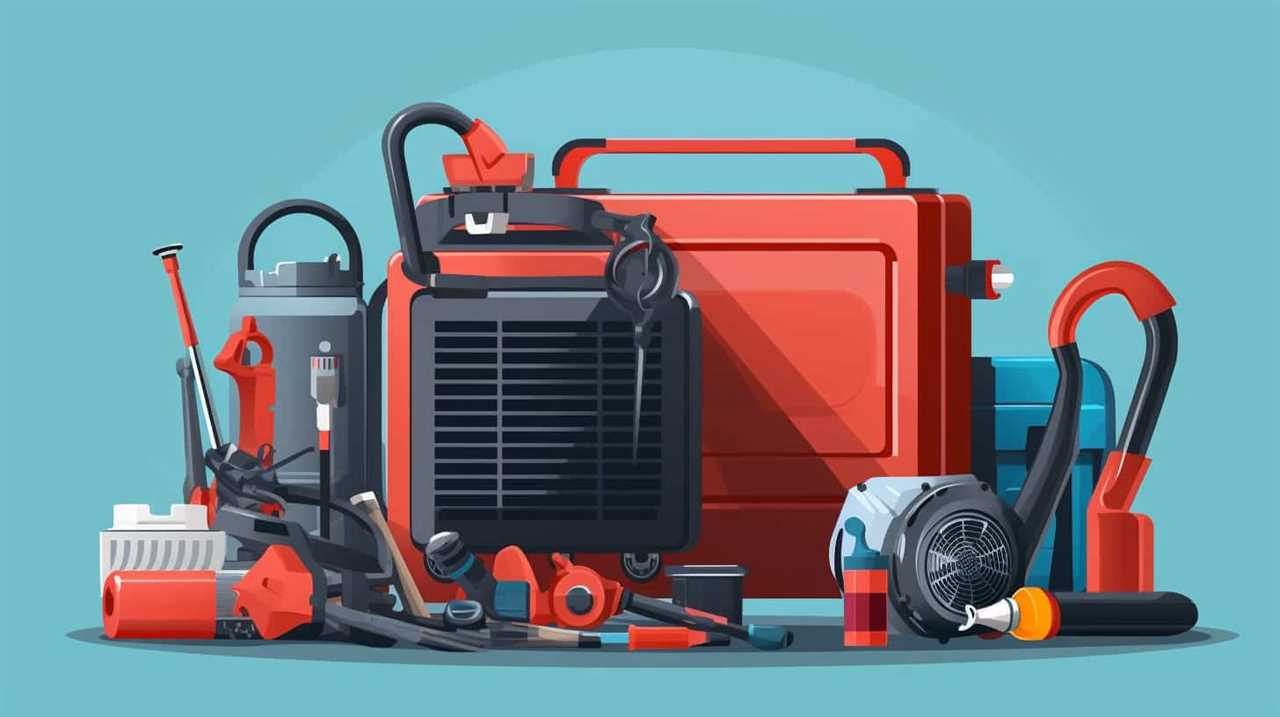
In geothermal heating systems, heat pumps are used to transfer the heat from the ground to the building, providing a reliable and constant source of warmth. Solar heating systems, on the other hand, use solar collectors to absorb the sun’s energy and convert it into heat, which is then used for heating purposes.
To better understand the advantages of geothermal and solar heating, let’s take a look at the following table:
| Renewable Energy Source | Advantages |
|---|---|
| Geothermal Heating | – High energy efficiency |
- Minimal environmental impact
- Reliable and constant heat supply | | Solar Heating | – Abundant and renewable energy source
- Reduced reliance on fossil fuels
- Lower energy costs |
The Role of Energy Efficiency in Reducing Carbon Footprint
One of the key ways to reduce our carbon footprint is by improving energy efficiency in our heating systems. By incorporating energy efficient appliances and sustainable building design, we can significantly decrease our energy consumption and greenhouse gas emissions.
Here are four reasons why energy efficiency plays a crucial role in reducing our carbon footprint:
Lower energy consumption: Energy efficient appliances are designed to use less energy while still providing the same level of comfort. This means less energy is needed to heat our homes, resulting in reduced carbon emissions.
Reduced reliance on fossil fuels: Energy efficiency measures can help us decrease our dependence on fossil fuels for heating. By using renewable energy sources such as solar or geothermal, we can further reduce our carbon footprint.
Financial savings: Energy efficient heating systems can lead to significant cost savings over time. By reducing energy consumption, homeowners can lower their utility bills and save money while also reducing their carbon footprint.
Climate change mitigation: Improving energy efficiency in heating systems is a practical and effective way to mitigate climate change. By reducing carbon emissions, we can contribute to the global effort to combat the adverse effects of climate change.

Green Heating Solutions for a Sustainable Future
As we look to the future, we can achieve a sustainable and eco-friendly heating system by implementing green heating solutions. Two key solutions that hold great promise are solar powered heating and geothermal technology. Solar powered heating utilizes the sun’s energy to generate heat, reducing our reliance on fossil fuels and lowering carbon emissions. This technology harnesses the power of solar panels to convert sunlight into usable energy for heating purposes. On the other hand, geothermal technology involves tapping into the Earth’s natural heat to warm our homes and buildings. By utilizing the constant temperature beneath the Earth’s surface, geothermal systems provide efficient and renewable heating. Both solar powered heating and geothermal technology offer viable alternatives to traditional heating methods, allowing us to reduce our carbon footprint while enjoying the benefits of a sustainable future.
| Solar Powered Heating | Geothermal Technology | |
|---|---|---|
| – Utilizes sunlight to generate heat | Taps into the Earth’s natural heat | |
| – Reduces reliance on fossil fuels | Provides efficient and renewable heating | |
| – Lowers carbon emissions | Utilizes constant temperature beneath the Earth’s surface | |
| – Utilizes solar panels | Offers a sustainable alternative to traditional heating methods | |
| – Provides a sustainable and eco-friendly heating solution | Allows for a reduction in carbon footprint |
Frequently Asked Questions
How Much Does It Cost to Install a Heat Pump System for Heating?
Cost of installing a heat pump system for heating varies based on factors like size, type, and location. However, a cost comparison shows that heat pumps are more energy-efficient in the long run, leading to significant savings.
Are There Any Government Incentives or Rebates Available for Switching to Green Heating Solutions?
Yes, there are government incentives and rebates available for switching to green heating solutions. These financial benefits can help offset the cost of installation and encourage the adoption of more environmentally-friendly heating systems.
What Is the Average Lifespan of a Heat Pump System Compared to Conventional Heating Methods?
The average lifespan of a heat pump system is significantly longer compared to conventional heating methods. This not only improves heat pump efficiency but also reduces the environmental impact of traditional heating methods.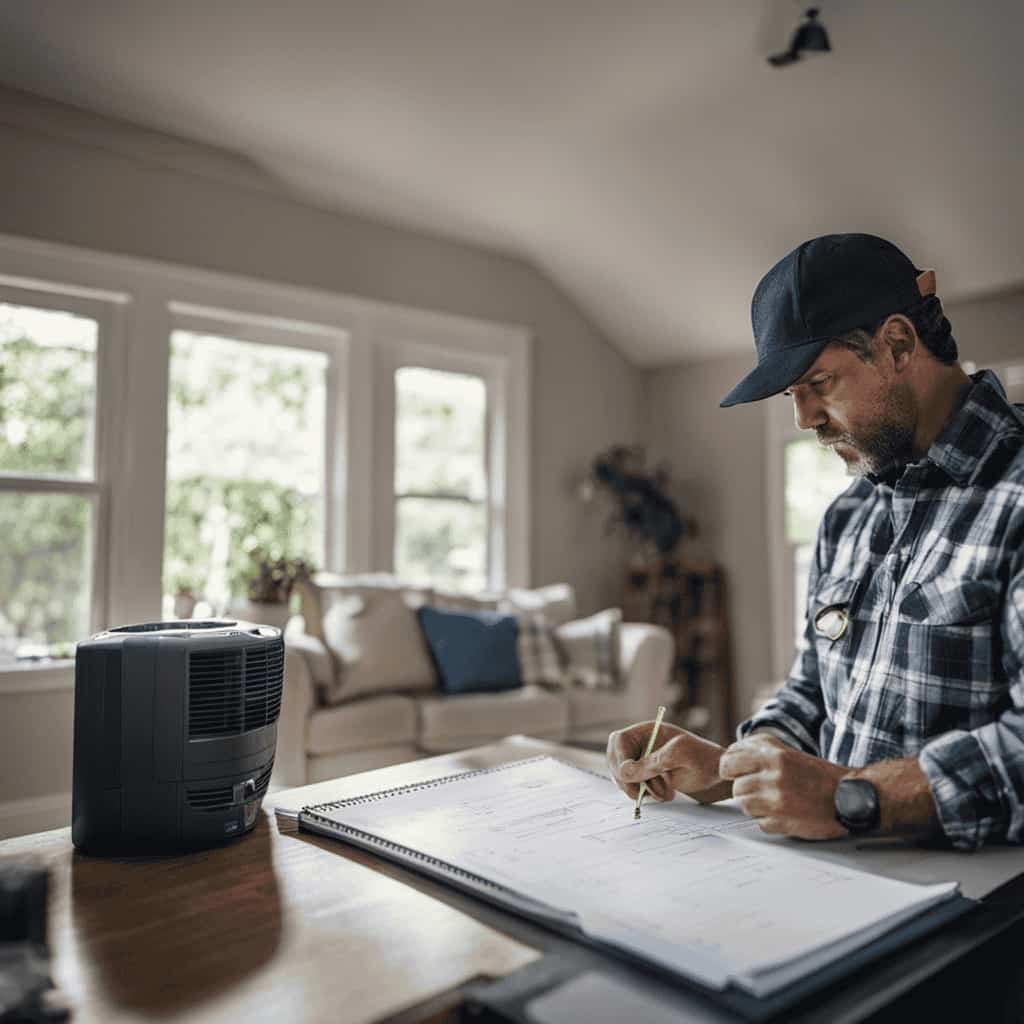
Can Green Heating Solutions Be Integrated With Existing Heating Systems in Older Homes?
Renovating older homes can be a challenge when retrofitting existing heating systems. However, with the right expertise and technology, integrating green heating solutions into older homes is not only possible but also a step towards liberation from carbon-intensive practices.
Are There Any Limitations or Drawbacks to Using Renewable Energy Sources for Heating?
There are limitations and drawbacks to using renewable energy sources for heating. These include higher upfront costs, intermittent energy generation, and the need for backup systems. However, with advancements in technology, these challenges can be overcome, leading to a greener and more sustainable future.
How Does Green Heating Using Heat Pumps Contribute to Reducing Electricity Usage?
Green heating using heat pump efficiency solutions significantly reduces electricity usage. Heat pumps extract renewable heat energy from the environment and use it to heat buildings. By doing so, they consume less electricity compared to traditional heating systems. Heat pump efficiency solutions optimize the performance of these systems, allowing them to provide heating and cooling with minimal electricity input. This reduces energy consumption, lowers carbon emissions, and contributes to a more sustainable and eco-friendly future.
Conclusion
In conclusion, green heating solutions have the potential to revolutionize climate control and significantly reduce our carbon footprint. By utilizing heat pump technology and renewable energy sources, we can achieve both energy efficiency and environmental sustainability.
One interesting statistic to note is that switching to green heating methods can reduce carbon emissions by up to 70%, making it a crucial step towards a more sustainable future.
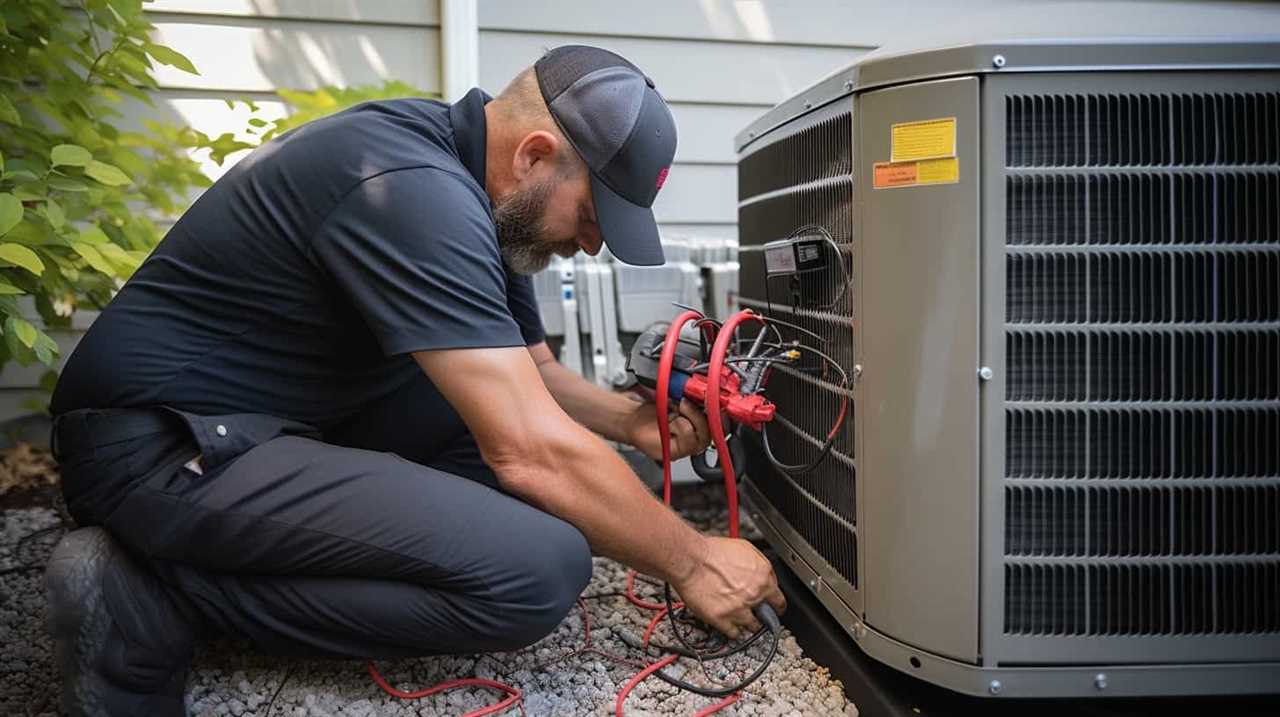
Let’s embrace these solutions and work towards a cleaner and greener planet.
-

 Residential and Commercial Applications2 weeks ago
Residential and Commercial Applications2 weeks agoBest Amana Heat Pump Reviews
-

 Thermal Energy Transfer2 weeks ago
Thermal Energy Transfer2 weeks agoBreakthroughs in Modern Heat Pump Systems: Thermal Energy Edition
-

 Residential and Commercial Applications2 weeks ago
Residential and Commercial Applications2 weeks agoBest Heat Pump
-

 Geothermal Heat Pumps3 months ago
Geothermal Heat Pumps3 months agoUpgrade Your Comfort with Our Efficient HVAC Systems
-

 Air Conditioning3 months ago
Air Conditioning3 months agoExploring Energy-Efficient Air Conditioning Heat Pumps
-

 Geothermal Heat Pumps3 months ago
Geothermal Heat Pumps3 months agoInnovative Geothermal Heat Pump Manufacturers Revolutionize Energy Efficiency
-

 Thermal Energy Transfer1 month ago
Thermal Energy Transfer1 month agoBoost Your Heat Pump Efficiency: Interactive Guide
-

 Residential and Commercial Applications2 weeks ago
Residential and Commercial Applications2 weeks agoBest Portable Heat Pump Heat & AC










